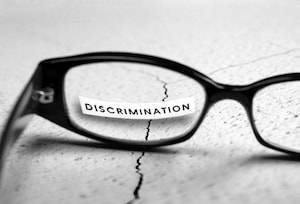Supreme Court to Hear Cases on Workplace Sexual Orientation Discrimination
 The U.S. Supreme Court recently announced that it will hear three cases involving discrimination on the basis of sexual orientation and sexual identity in the workplace. The consequences of their decisions in these cases could be far-reaching for private citizens as well as employers who must comply with state and federal employment laws. A recent study shows that LGBT people are much more likely to experience discrimination at work than their heterosexual peers. A 2017 Harvard study found more than one in five LGBT Americans report experiencing employment-related discrimination. Therefore, many LGBT Americans will be eagerly waiting to hear about the Supreme Court’s decision on this issue.
The U.S. Supreme Court recently announced that it will hear three cases involving discrimination on the basis of sexual orientation and sexual identity in the workplace. The consequences of their decisions in these cases could be far-reaching for private citizens as well as employers who must comply with state and federal employment laws. A recent study shows that LGBT people are much more likely to experience discrimination at work than their heterosexual peers. A 2017 Harvard study found more than one in five LGBT Americans report experiencing employment-related discrimination. Therefore, many LGBT Americans will be eagerly waiting to hear about the Supreme Court’s decision on this issue.
This legal question has presented a split among the lower courts. Some courts have ruled that federal law prohibits employers from discriminating against those who identify as LGBT. Other courts have held that there is no law prohibiting this discrimination in the workplace.
The federal law involved in these cases is Title VII of the Civil Rights Act, which prohibits workplace discrimination on the basis of race, color, religion, sex, or national origin. Absent from this list is sexual orientation or transgender status. So, that begs the question: Can the word “sex” be interpreted to include sexual orientation or transgender status? Those who argue that Title VII does protect LGBT individuals say that sexual orientation is a subset of sex, which is a prohibited basis under Title VII. In addition, those who argue that Title VII also protects transgender individuals claim that it is impossible to discriminate against an employee based on that employee's status as a transgender person without being motivated, at least in part, by the employee's sex. On the other hand, those who argue that Title VII does not protect LGBT individuals claim that “sex” refers only to someone’s biological sex determined at birth.
Facts of the Cases Before the Court
Of the three cases before the Supreme Court, two involve sexual orientation. In one, a New York skydiving instructor said he was fired after he told a client that he was gay. In this case, the appellate court said that the employee was protected under Title VII.
Another case concerns a Georgia man who lost his job with Clayton County after his boss discovered that the man played in a gay softball league. In this case, the reviewing court said that federal law did not bar this type of discrimination.
The third case to be considered involves a Michigan woman who was fired after she told her employer she was transgender. The appellate court in this case said that she was protected by Title VII.
As you can see, courts do not agree on this hot-button issue. Thus, it is ripe for review by the Supreme Court. These case will be heard next fall, and an opinion is expected during the run-up to the 2020 presidential election.
Contact a Milwaukee Employment Law Attorney Today
In many cases, the law is clear about what is required of employers and what rights employees have. However, circumstances change, and the law itself changes. This can create gray areas for employers, and without appropriate legal counsel, an employer may open itself up to legal liability.
The knowledgeable Milwaukee, WI employment lawyers at Gimbel, Reilly, Guerin & Brown, LLP have decades of experience advising businesses of their legal responsibilities. Our firm also represents aggrieved employees. You can trust our firm to provide you with high-quality legal advice and to represent you in court. Call our office today at 414-271-1440.
Sources:
https://www.npr.org/2019/04/22/716010002/supreme-court-will-hear-cases-on-lgbtq-discrimination-protections-for-employees
https://www.nbcnews.com/feature/nbc-out/stakes-high-supreme-court-takes-lgbtq-employment-cases-n997816







